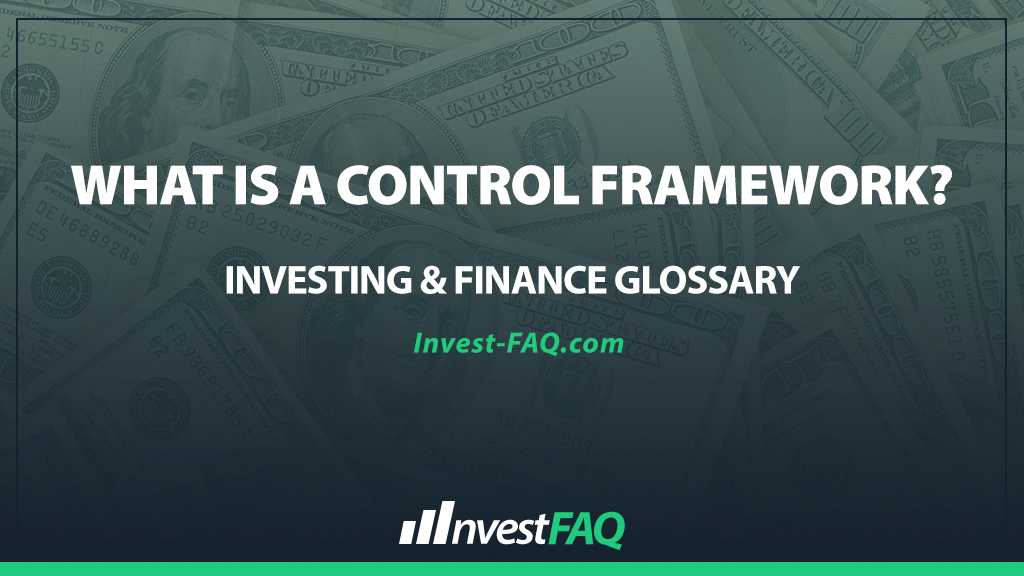
Control Framework
Contents
A control framework is a structured set of guidelines designed to help organizations establish, assess, and enhance their system of internal controls. It provides a comprehensive blueprint for managing risk, ensuring compliance, and achieving operational objectives effectively.
In the business world, a control framework serves as a critical tool for governance, risk management, and compliance (GRC). It enables organizations to systematically identify and mitigate risks, ensure accurate financial reporting, comply with laws and regulations, and ultimately, safeguard assets and shareholder value.
Example of a Control Framework
Consider the case of “DEF Corporation,” which decides to implement the COSO (Committee of Sponsoring Organizations of the Treadway Commission) Internal Control Framework to enhance its financial reporting processes.
DEF Corporation begins by mapping out its existing controls against the five components of the COSO framework: Control Environment, Risk Assessment, Control Activities, Information and Communication, and Monitoring Activities.
In DEF Corporation’s scenario, the COSO framework guides the company through a comprehensive evaluation of its internal control system.
By examining its control environment, DEF identifies the need to strengthen its ethical values and leadership practices. During the risk assessment process, it identifies key financial reporting risks and implements specific control activities to address these risks.
DEF also improves its communication channels to ensure that financial reporting information is accurately conveyed and understood throughout the organization. Finally, by establishing regular monitoring activities, DEF can assess the effectiveness of its controls and make necessary adjustments. This structured approach helps DEF Corporation ensure that its financial reporting is both accurate and compliant with relevant standards.
Types and Uses in Business Scenarios
Control frameworks can be adapted to a variety of business scenarios, including but not limited to:
Financial Controls: To enhance the accuracy and reliability of financial reporting.
Operational Controls: To improve efficiency and effectiveness in business processes.
Compliance Controls: To ensure adherence to laws, regulations, and industry standards.
IT Controls: To secure information systems and protect data integrity.
Each of these applications involves tailoring the control framework to address specific risks and requirements inherent in the scenario, thus enabling organizations to achieve their objectives while mitigating risks.
Significance for Investing & Finance
In accounting, the concept of a control framework is of paramount importance for several reasons:
It provides a structured approach to managing financial risks and ensuring the accuracy of financial statements.
By standardizing control processes, it facilitates compliance with accounting standards and regulatory requirements.
It enhances the reliability of financial information, which is crucial for decision-making by management, investors, and other stakeholders.
In summary, a control framework is an essential element of an organization’s governance, risk management, and compliance efforts.
By offering a systematic approach to evaluating and improving internal controls, it plays a crucial role in ensuring operational efficiency, financial integrity, and compliance with laws and regulations, thereby supporting sustainable business growth and success.
FAQ
What is the primary purpose of a control framework in an organization?
A control framework aims to establish a systematic approach for managing risks, ensuring compliance, and enhancing the reliability of financial reporting through structured internal controls.
How does a control framework differ from a control environment?
While a control environment sets the tone and culture for risk management and ethics within an organization, a control framework provides a structured set of guidelines and practices to implement and assess the effectiveness of these internal controls.
Can small businesses benefit from implementing a control framework?
Yes, small businesses can benefit significantly from implementing a control framework, as it helps in identifying risks early, ensuring compliance, and establishing efficient operational processes, which are crucial for sustainable growth.
What are some common control frameworks used by businesses?
Common control frameworks used by businesses include COSO Internal Control Framework, ISO 31000 for risk management, and COBIT for information technology controls, each tailored to specific organizational needs and regulatory requirements.
